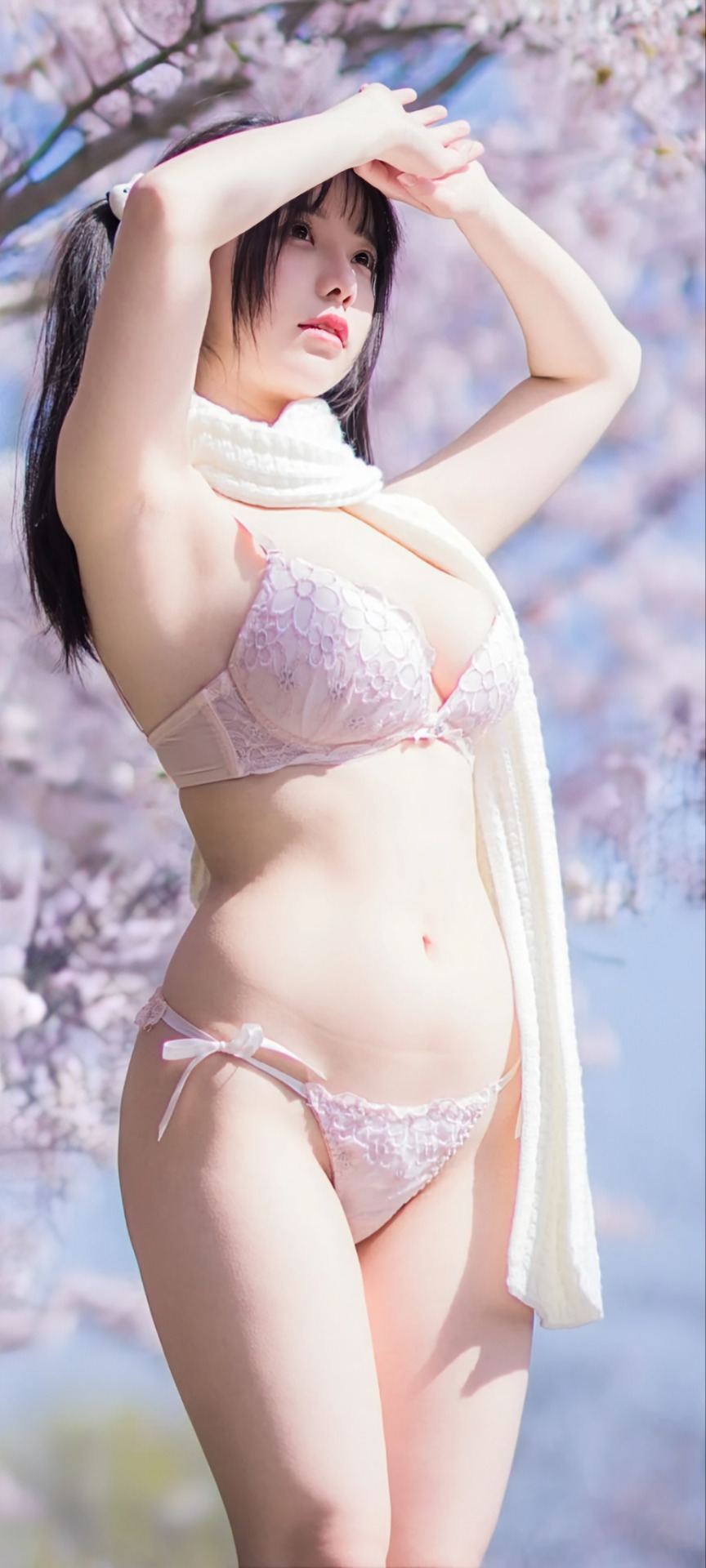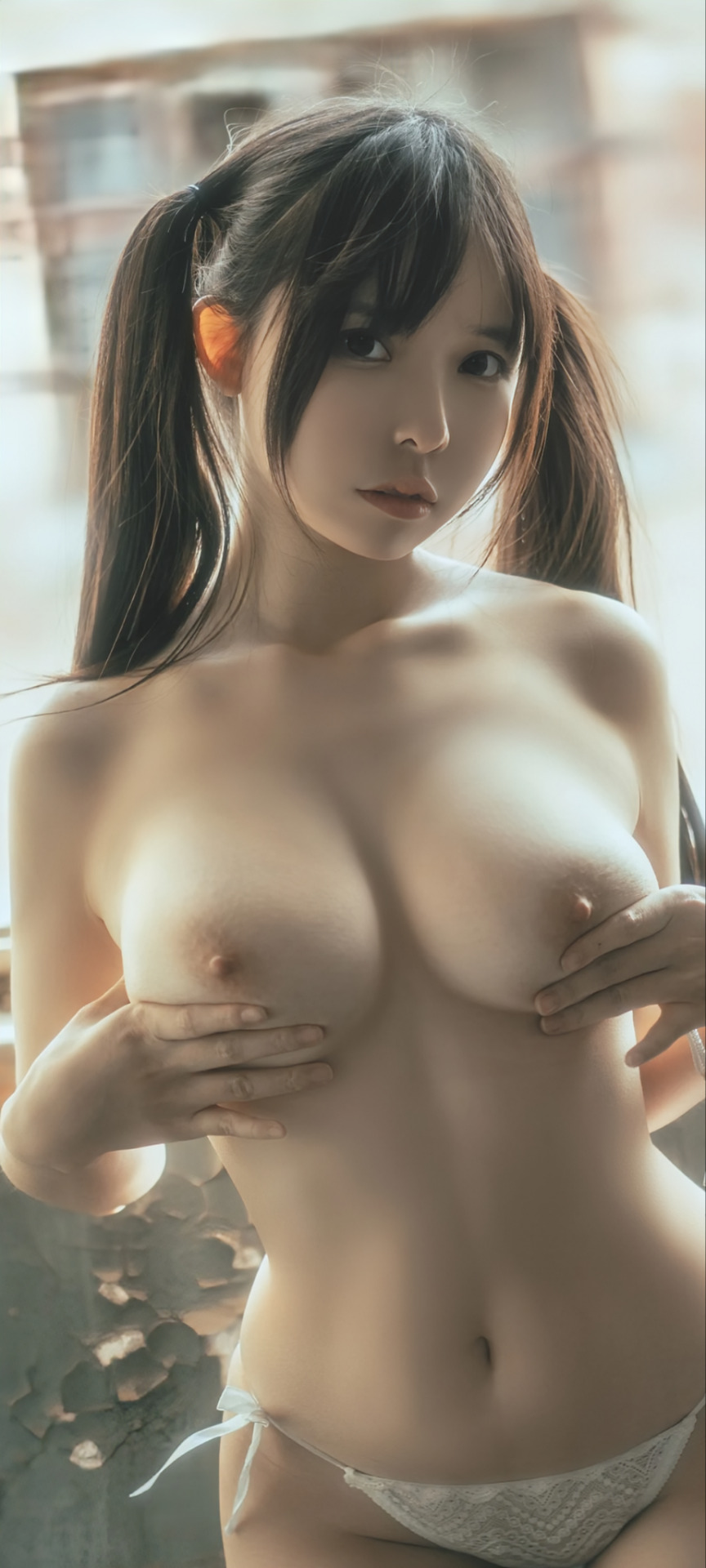#白帝
Explore tagged Tumblr posts
Text
Love and Redemption – Bailin
Behold! A meta about Bailin from Love and Redemption, if there’s anyone interested. It’s quite long, so be warned...
Many thanks to my dear @nieninque-nyerea for huge help with the translation from my mother tongue - I would never have the mental strength to do it by my self!
Bailin
Bailin is a complicated character... and that's the reason why it's so sad that all opinions about him are so simplified and can be summed up in three words "he's the worst". Because he isn't... and at the same time, yes, he definitely is. As you can see, the situation is complicated. It's honestly quite surprising how much people want to simplify his actions and character, especially considering the complex psyche of the main trio (or quartet, depending on viewer's philosophy) which makes the whole story so interesting, compelling and surprising (with a help of the wonderful secondary characters, but shh :)). I guess human desire for simple, black and white answers is our greatest superpower…
I would like to start with a small polemic about whether Bailin is a villain. I realize I'm being a bit loose with the terminology here, but I'd argue that he is not a villain. "What?" I hear the indignant voice of the internet – as if we didn't have enough evidence that in the end it was all his fault! (And there really is plenty of evidence.) If I may, I would call Bailin more of an antagonist, someone who is in opposition to the hero – if we consider Si Feng the hero of the story, then completely deliberately, if the hero is Xuan Ji/Rahu Ketu, then Bailin is in opposition which he himself is hardly aware of, or at least does not admit to. As horrible as Bailin's actions are (and they are), what's really interesting are his motivations. So, enough of the quibble – what is really Bailin's deal?
The answer is very surprising in its simplicity – it's all about doing good. That's right - Bailin is unable to see his actions as problematic, let alone evil, because he firmly believes that whatever he does, he is acting in the service of what is „right“. Terrible is the surprise at the end of the story for him and his subjects, who got dragged along by the unbreakable strength of his conviction that what they are doing is right. (Flying Snake is the only exception, and even his dilemma it is not about the goodness of Heavenly Realm, but about the choice of duty vs friends.) It is not unusual in stories that even a completely unadulterated villain, let alone an antagonist, is convinced of the rightness of his behavior and the hero is primary someone who ignores his motivations and constantly stands in his way, and is therefore in the villain's/antagonist's interest to get rid of them. (We could include the relationship between Bailin and Si Feng into this category.) It is considerably less common when the antagonist is not aware of his opposition to the hero, and is even convinced on fundemental level that everything he does is only helping the hero - even if it‘s the very disintegration of hero's personality. And that is exactly the relationship between Bailin and Xuan Ji/Rahu Ketu. When one looks back at all of Bailin's actions, crimes, and even wilful acts it's actually surprising that his plan isn't more sinister and his motivations far darker. After all, Bailin really wants victory over the enemy (in his case, the victory of Heavenly Realm over demons), and in doing so he does not stand out from the ranks of other characters on both sides of the conflict. What makes Bailin truly unique is the radicality and disproportionality of his solutions, which often not only worsen the entire problem, but in several cases directly cause a brand new one. And all of this happens while Bailin is fully convinced of his truth, his rationality and the infallibility of his own decisions.
And that brings us to what is Bailin really like. Bailin does not have to be inherently evil to be destructive - both to himself and to others. He only needs two characteristics to do this, and both can be summed up in one problem - the lack of (appropriate) self-reflection.
These two characteristics are paranoia and lying to himself (especially in emotional matters).
Bailin belongs to that group of people who believe there is someone after them. Who? Everyone, anyone. The world is full of tricks and traps, you can't trust anyone, except maybe those you have authority over, and even there you're on a thin ice. You can't rely on anyone - and trusting someone emotionally is out of the question! It is always necessary to count on the worst possibility imaginable and look for the worst conceivable motive in others. Bailin's decisions in their monstrosity unsurprisingly match this mindset. Why wouldn't he decide for the worst possible solution, when he is convinced that only his own alertness and preparedness prevent others from using similar weapon against him?
To paranoia is strongly linked lying to oneself. In the world as Bailin sees it, is no place for weakness, hesitation, trust, let alone feelings. All of these things make Bailin (in his mind) an easy prey. Feelings most of all – for him to have feelings for anyone would be a tragedy indeed! It is necessary to fight against these things, or rather to deny their existence, not only in front of others, but above all in front of yourself. All unpleasant feelings and unexpected emotions can be rationalized! Woe be him who tries to impose feelings and emotions on you while you are working so hard for the good of Heavenly Realm! The problem is that Bailin is a good liar - he manages to manipulate a number of characters throughout the story, but he doesn't manipulate anyone better than himself.
Such relationship with reality can be deadly enough on itself, but the circumstances of Bailin's life take it to a truly terrifying extreme. Bailin is no nobody, he is the king of Heavenly Realm (I don't know the exact title), and the ongoing war with demons directly affects him. The very necessity of winning would justify a lot in Bailin's eyes. And into that comes Rahu Ketu and the much-hated feelings and emotions. Bailin does not understand himself - or, more precisely, does not want to understand himself. He is in a complicated situation and he knows only two things for sure. First: there is a war that is not going well, and he must win it – but it is the demons who hold all the triumphs in the form of their strongest general. In order for Bailin to win, he will have to get rid of this obstacle. Second: It is the same demon general that he must get rid of, without whom he cannot imagine his life. But Bailin doesn't like to think about that.
Bailin's paranoia does not allow him to accept or even imagine any other solution to their situation than victory, preferably an absolute victory – the enemy cannot be trusted, just as one cannot trust any peace designs, even should the enemy party come up with them. If Bailin doesn't attack first, in the fastest and smartest way, they will definitely lose! Of course, he can't even trust that „friend“ who sits and drinks with him so often, Bailin mustn't be fooled! Although he might wish they could sit together like this forever...
The solution Bailin will choose is a truly horrifying display of rationalized paranoia.
He is not committing a war crime, he is just doing what is necessary for Heavenly Realm to win! (Regarding the war crime: I'm sure poisoning a peace messenger would fall in this category. And yes, Bailin didn't know what message Rahu Ketu carried, but he would have known if he had listened to him. But he won't because he convinced himself such thing is not possible – that it will be either his solution or his loss. But even if we give him the benefit if doubt for not knowing, the attack was still made by trickery during friendly negotiation.)
And it's not like he wants to keep Rahu Ketu with him at all times, so he can never leave him, faithful and stripped of any identity that could possibly cause them to become enemies again! No, he is merely providing a weapon for Heavenly Realm which they never had and that will guarantee their victory!
And he doesn't at all take revenge on all the demons (including Rahu Ketu) when he orders God of War to slaughter her own people and her king. No, he's just making sure the rebellion will never happen again! So what – God of War will never even remember who she is, or realize who she killed, so why would it matter???
All altruistic and selfless reasons! In one move Bailin won the war and got rid of all his enemies. How could that be wrong??
In the same way it is later absolutely necessary that Xuan Ji does not regain her senses - not because she could then fall in love and forever leave Bailin for Si Feng, but because she could then become terrible, evil (or rather rightfully pissed off) demon and destroy the whole world! And if that strategy fails, then it's necessary to get rid of Xuan Ji, Si Feng and Jade Cup, because evil demon, war, and the destruction of the world are all serious problems - they don't necessarily have anything to do with the fact that Bailin really does not want to meet Rahu Ketu again and face him after all the things he had done to him.
From Bailin's point of view all of his decisions seem reasonable and sound. Logical. As if there really was nothing else to do. Of course, the problem is that Bailin's perception of the world is anything but reasonable and sound. It's paranoid and distorted – the demons are asking for peace after all, Rahu Ketu's feelings are sincere and he's not plotting any treachery or attack, Si Feng isn't after him... we could go on. Bailin can pass off his paranoia as rationality only by the force of his will and his own lies. But he indeed has a strong will and had believed his own lies a long time ago.
And so finally, Bailin stands before us as we know him - in his own eyes, and in the eyes of many, the paragon of goodness, purity and fighting for the right thing, especially in a world where the enemy could be everywhere, even (or maybe especially?) among one's closest people. Bailin shines so brightly precisely because he firmly believes that what he is doing is right. He relies on his own abilities and his own judgment, because his suspiciousness does not allow him to trust the judgment and motives of others. He is controlling, dominating even , because deep down he fears abandonment (without acknowledging it) and he is not able in front of himself to call love by its real name - he'd rather dress it up in a guise of usefulness and calculation, because what he fears most of all is to be loved only to be betrayed. If that should be the case, isn't it less painful to betray first?
Rahu Ketu is the person Bailin loves in all his complexity, including the potential danger he represents. God of War is the same beloved person, robbed of everything that could threaten Bailin – loyalty to the enemy, knowledge of her past, awareness of her own self; she is ideal because she is Bailin's and she cannot leave or betray him – she would be leaving and betraying her only identity. (Or rather Bailin thinks she can't, but life sucks...) Xuan Ji, on the other hand, is for Bailin the worst possible version of the same person: she's another erasure, a desperate attempt to recreate the person God of War was before her rebellion. But this time she doesn't know or love Bailin and her will is her own. She is not burdened by Rahu Ketu's consciousness, and yet Bailin has to watch her "worst" instincts win for nine lifetimes. When the tenth life comes, Bailin panics and heads down to Earth to get her back under his control before it's too late. But alas, it's too late already – while he wasn't with Xuan Ji, someone else had been... Bailin has hurt all three versions of his beloved person – denying or trying to deny each of them the right to freedom, an independent life and, what is most painfull, their own identity. Rahu Ketu states many times that he is not Xuan Ji and wants nothing to do with her, even though Xuan Ji undoubtedly is a part of him – but it's the part that was forced on him, that he was bound into, and for that Bailin can't be so easily forgiven... And Bailin, high above everyone in his white clouds but unable to admit the truth, says: "I didn't do anything wrong, just what was necessary!"
So what's the conclusion? Is Bailin really "the worst"? As I said in the beginning – he is, as well as he isn't… but for me Bailin is primarily tragic figure. He is definitely the person whose decision will negatively affect the largest number of people. His decisions are some of the worst. But his motivations... are surprisingly pure, although absolutely misguided. Bailin doesn't want to commit evil – he just hasn't realized that he is doing exactly that. What is worse – conscious malice or a mistaken belief in one's own sanctity, is up to everyone. Bailin's actions and their appalling utilitarianism cannot be very well defended, but I would find extenuating circumstances in his motivations.
And it's not only that - perhaps the most telling part is the end of Bailin's story. Because in the end Bailin submits and admits his fault. Yes, a higher up must appear - Bailin is too convinced that the world, as seen through his paranoia, is the real world so it is impossible for anyone but the ultimate authority to open his eyes - the most powerful one and the one with "the patent for the truth", the one in whose interest was Bailin convinced he has been acting. Metaphorically speaking, Bailin must cry out upwards: I did it all for You and for the sake of Heavenly Realm! And he must hear emperor's „no“ to find humility. But Bailin‘s humility is real - such humility can only exist in someone who was not only truly convinced that he was doing the right thing, but who also sincerely wanted to do the right thing. Bailin's humility is beautiful in its tragedy - although Bailin had a habit of listening mostly only to himself, his ego is not what matters the most to him. The prosperity of Heavenly Realm is what matters the most, so the knowledge of his own failure is therefore more painful to him than any punishment.
Simply put, Bailin has a beautiful “Am I a baddie?” moment, and the most tragic part of the whole situation is that this really is a brand new information for him. What should he do with himself now?
All that remains is to drink the offered cup, resigned to his fate.
It's a different punishment than voluntarily giving up one's powers – that was an acknowledgment of incompetence, of mistakes. I surrender that with which I have done much evil in the name of good. I'm giving up my powers because I can't no longer trust myself.
This is a different kind of punishment - it carries hope. It carries within itself a new chance to get it right.
Perhaps at the very end, Rahu Ketu isn't really asking for a punishment, but for a sign of trust - a sign of the biggest change Bailin will have to go through.
Will you drink? Will you relinquish the control, you've clung to, the one for which you've ruined so many lives? Because of which you ruined my life? Will you overcome your fear and walk with me into the unknown? I already know what it's like to lose control, what it's like to be tossed around by forces more powerful than yourself and don't even know your own name - will you dare? Can you surrender yourself to the world and the people in it with the faith that they won't hurt you?
Will you drink with me?
#love and redemption#love and redemption meta#cdrama#琉璃#Liu Li#Liu Li Mei Ren Sha#bailin#bailin dijun#hao chen#meta#rahu ketu#Lou Hou Ji Du#Star of Mosha#chu xuanji#xuan ji#yu sifeng#昊辰#柏麟#Bai Di#白帝#羅喉計都#褚璇玑
16 notes
·
View notes
Text

★ 【白帝】 「 耀嘉音 」 ✔ republished w/permission ☆ follow me on twitter // bsky
66 notes
·
View notes
Text










2025.1.15 東京 都内で4作品がコラボ店舗を出していた
#やり直し令嬢は竜帝陛下を攻略中#ジル・サーヴェル#ハディス・テオス・ラーヴェ#アイドルマスターミリオンライブ#Chrono-Lexica#永吉昴#望月杏奈#七尾百合子#真壁瑞希#ロコ#アイドルマスターシンデレラガールズ#乙倉悠貴#白菊ほたる#黒埼ちとせ#二宮飛鳥#早坂美玲#学園アイドルマスター#The Do-Over Damsel Conquers the Dragon Emperor#the idolm@ster million live#subaru nagayoshi#anna mochizuki#yuriko nanao#mizuki makabe#roco#the idolm@ster cinderella girls#yuki otokura#hotaru shiragiku#chitose kurosaki#asuka ninomiya#mirei hayasaka
4 notes
·
View notes
Text
A sweet design of Kimba and Kitty from the retro anime TV series Kimba the White Lion.
#Jungle Emperor#Kimba the White Lion#Kimba#Jungle Emperor Leo#Jungle Taitei#80s anime#70s anime#vintage anime#childhood nostalgia#Nostalgic anime#anime of the old times#retro anime#80s manga#70s manga#vintage manga#Nostalgic manga#manga of the old times#retro manga#ジャングル大帝#森林大帝#小狮王#小白狮#小白狮王
5 notes
·
View notes
Text

something old
#my art#star blazers#space battleship yamato#宇宙戦艦ヤマト#prince zwordar#yamato#さらば宇宙戦艦ヤマト#ズォーダー大帝#farewell to space battleship yamato#saraba uchuu senkan yamato#ズォーダー#great emperor zworder#great emperor zorder#great emperor zordar#great emperor zwordar#prince zordar#arrivaderci space battleship yamato#star blazers the comet empire#the comet empire#comet empire#ガトランティス#ガトランティス帝国#white comet empire#gatlantis#deþbhas#デスバス#白色彗星帝国#彗星帝国#白色彗星#girlboob
5 notes
·
View notes
Text























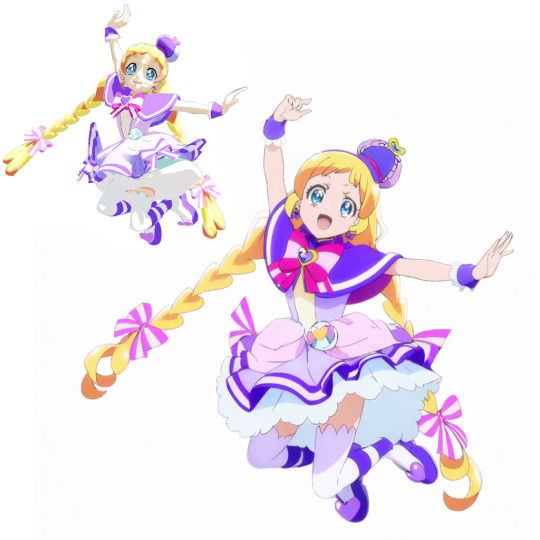

PIXIVで葬られた版権物のまとめです 線が途切れずくっきりしているのはだいたい手描きです ただしプリキュアはLORAです 後はウマ娘ラブライブもcivitaiでDLした物ですね 自作ローラは白猫プロジェクトとその他の版権物 それで版権物をLORAで作ってて分かった事は 装飾品の位置や形がぜんぜん正しく生成出来ないなと ファンは手だけじゃなくて細かい部分も気になる物なので まだまだ手描きの役割は大きいなと 最近はLORAはあまり使ってないですね kataragi ControlNet-LineartXLで線画から綺麗に色を塗れる様になったので
#白猫プロジェクト#コヨミ#兎田ぺこら#わんだふるぷりきゅあ!#マール#コッコロ#ウマ#娘矢野妃菜喜#ミュークルドリーミー#プリンセスコネクト#ぬるぺた#ティアムーン帝国物語#イノリ#ワンルーム、日当たり普通、天使つき。#まちカドまぞく#二次創作
7 notes
·
View notes
Text
【コスチューム】医者の白衣
目次 ▼【グラクロ】【コスチューム】医者の白衣の基本情報 ▼【グラクロ】【コスチューム】医者の白衣のステータス ▼【グラクロ】【コスチューム】医者の白衣の着用可能キャラ ▼【グラクロ】【コスチューム】医者の白衣の評価 【コスチューム】医者の白衣の基本情報 部位 衣装 レアリティ UR 入手方法 神器ショップ 価格 ダイヤ30個 【コスチューム】医者の白衣のステータス 防御力+180 忍耐率+7% 【コスチューム】医者の白衣の着用可能キャラ 【騎士道】ギルサンダー 【王国の期待の星】ギルサンダー 【雷帝】ギルサンダー 【コスチューム】医者の白衣の評価 白衣というよりは正装 医者の白衣というネーミングのコスチュームだが、医者っぽい雰囲気はなくどちららかというと正装。ハロウィンっぽさは楽しめないが普段のコスチュームとしてはかっこいい。 着用対象が多い こちらのコスチ…
0 notes
Text







0 notes
Text

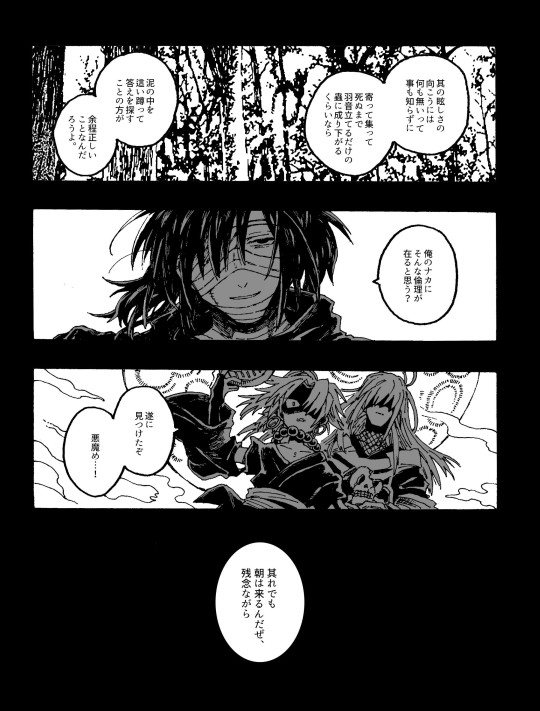

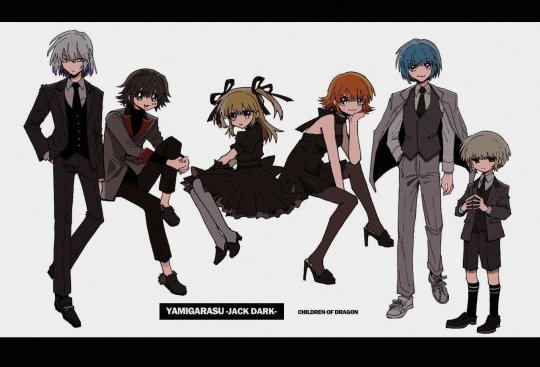
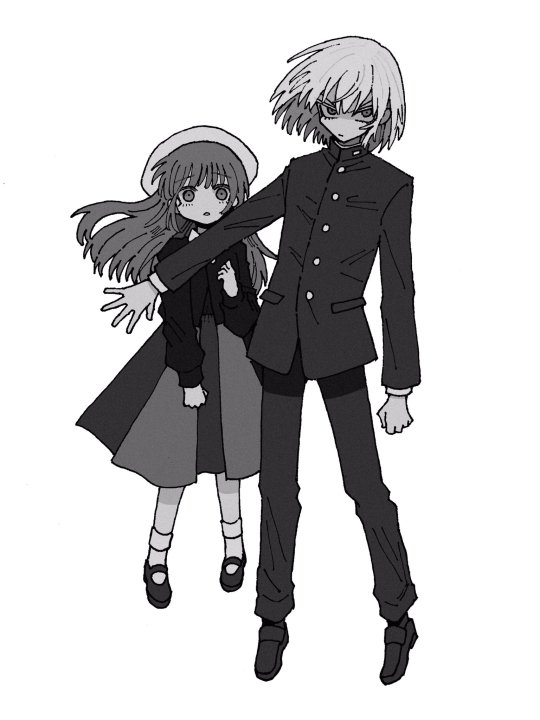

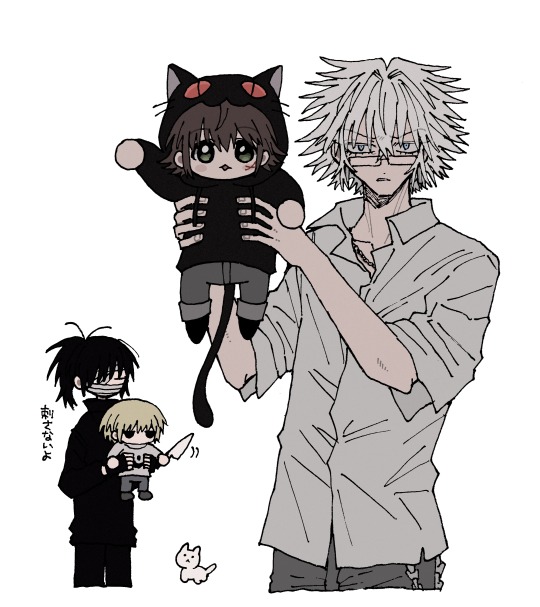

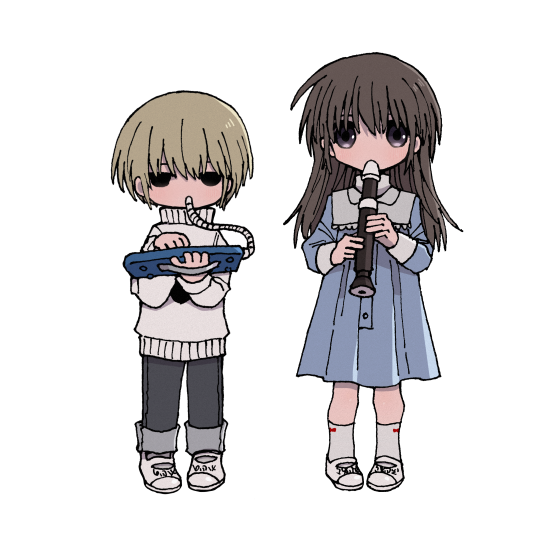
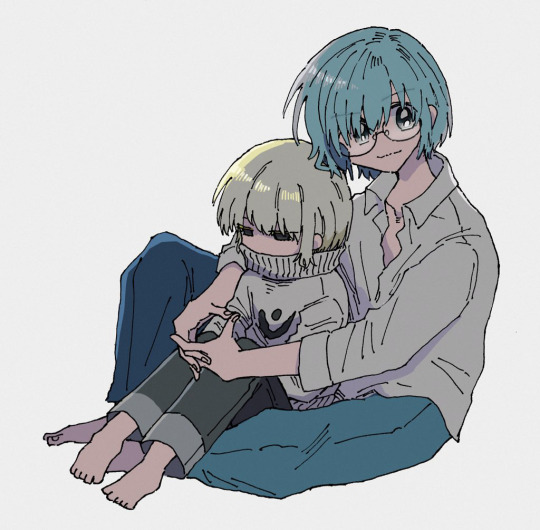
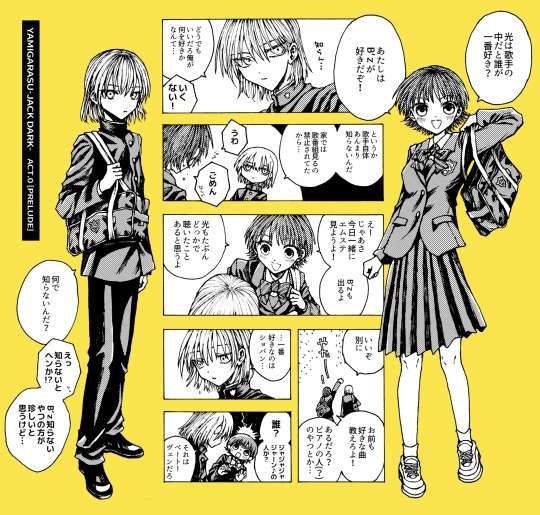
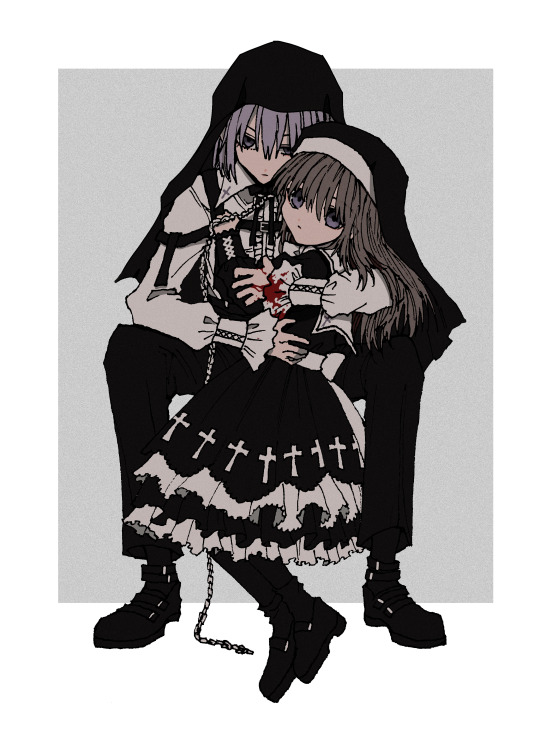
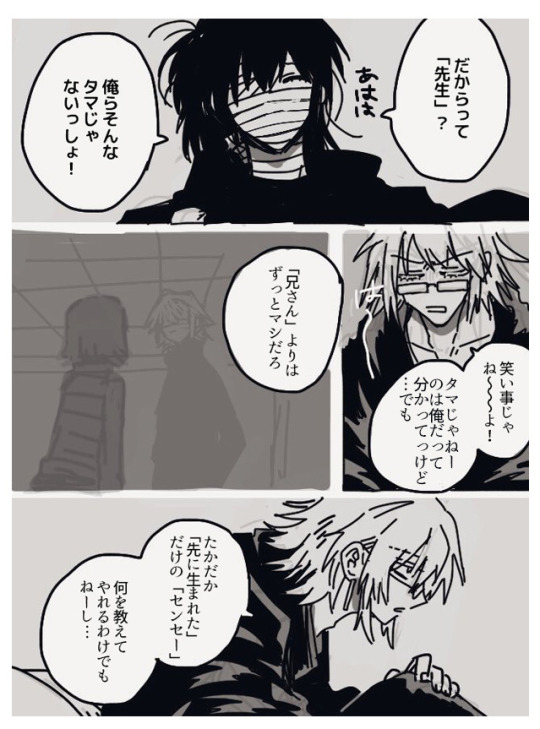


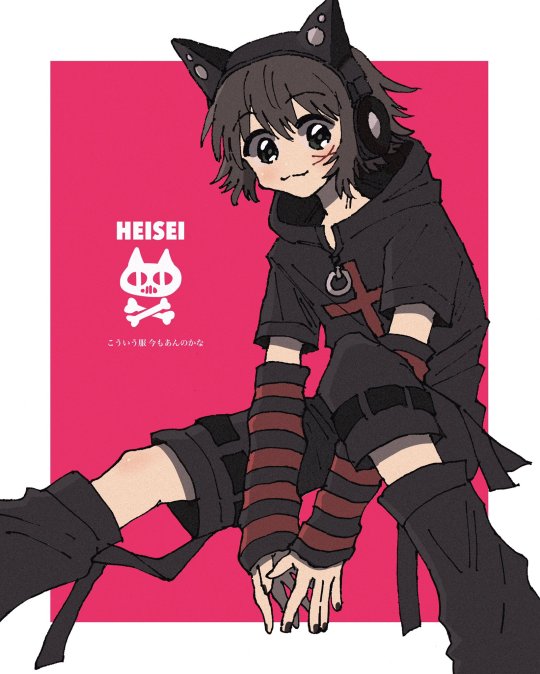


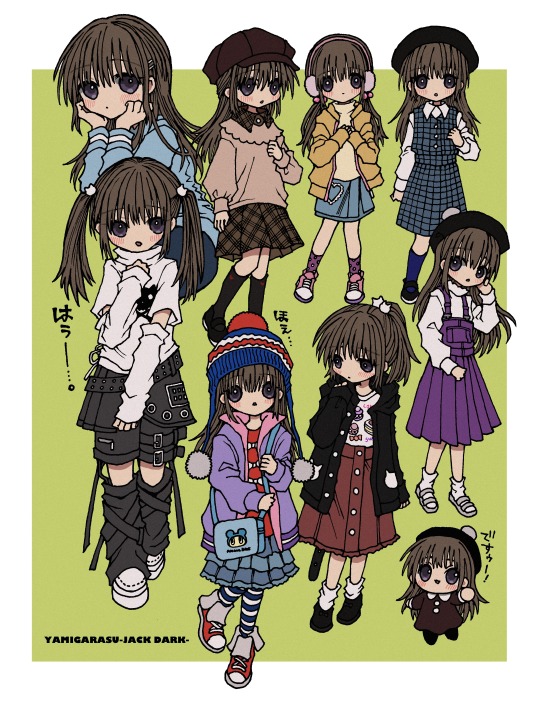
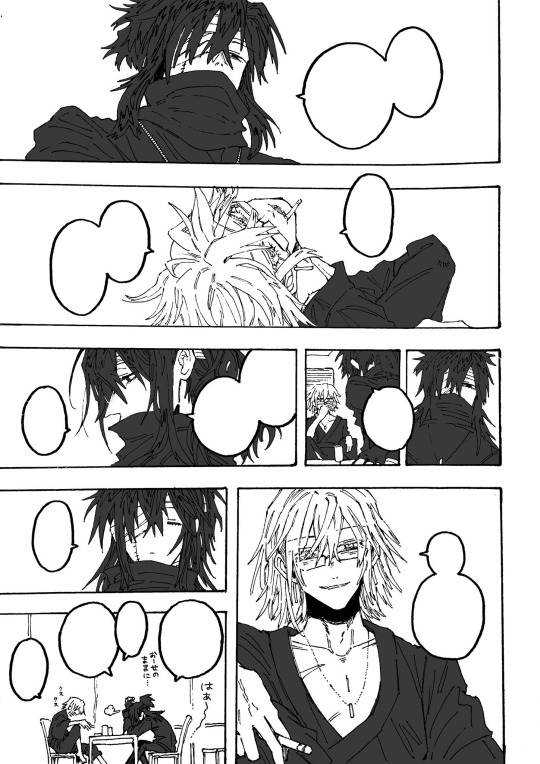
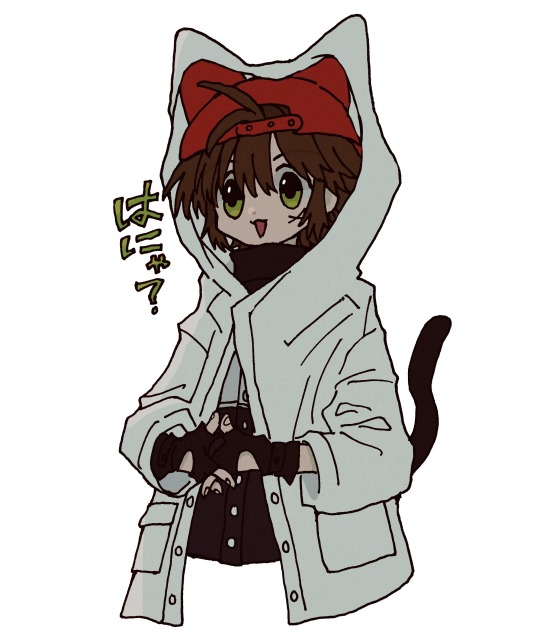
1 note
·
View note
Text

バニーガール by 白帝/WhiteM [Twitter/X] ※Illustration shared with permission from the artist. If you like this artwork please support the artist by visiting the source.
277 notes
·
View notes
Text
A cool design of Ryo Sanada In White Armor from Ronin Warriors.
#Sanada Ryo#Armor of Wildfire#Warrior of Flames#Shiroi Kikotei#Ronin Warriors#Legendary Armor Samurai Troopers#Yoroiden Samurai Torupa#Yoroiden Samurai Troopers#80s anime#70s anime#vintage anime#childhood nostalgia#Nostalgic anime#anime of the old times#retro anime#真田遼#烈火のリョウ#白い輝煌帝#真田辽#烈火之辽#火焰神里奥#白色辉煌帝
3 notes
·
View notes
Text
am i by chance cooking

#my conlang#space battleship yamato#star blazers#uchuu senkan yamato#宇宙戦艦ヤマト#star blazers the comet empire#comet empire#the comet empire#白色彗星帝国#白色彗星#彗星帝国#white comet#white comet empire#language#conlang#girlboob
5 notes
·
View notes
Quote
2024年は過去最高の税収ですね。GDPが上がらないのに、税収だけが上がるのは、税金を取りすぎなのです。景気弾力性の無い消費税が一番税収を上げています。実質賃金が減少を続けている中、物価高対策として消費税減税が世界の常識ですし、上記の面からも、消費税減税が最優先政策なのは明白です。
来年の値上げ、3千品目突破 今年を上回るペース 来春にかけて「値上げラッシュ」再燃の見通し(帝国データバンク)のコメント一覧 - Yahoo!ニュース
222 notes
·
View notes
Text
[莲花楼 Meta] Di Feisheng and the Three Kings
While looking through the cast list and end credits, I noticed that there had been actors cast as 炎帝白王 Yandi Bai Wang and 四象青尊 Sixiang Qingzun even though we don't get to see them in the final cut. Reading the original script, they appear in a deleted scene (unsure if it was actually filmed) in Episode 05, as a flashback during this scene with the robe in Jiao Liqiao's rooms.

It's explained in the script as Di Feisheng's old Alliance leader ceremonial robe, but in the final cut of the show, it seems to be implied as wedding robes Jiao Liqiao prepared for Di Feisheng.
Scene in original script:

FLASHBACK: Ten years ago, at the headquarters of the Jinyuan Alliance. DI FEISHENG is wearing that luxurious robe, sitting around drinking with the THREE KINGS. The TWELVE PHOENIXES are standing guard at one side. YANDI BAI WANG looks over at the TWELVE PHOENIXES and laughs.
YANDI BAI WANG: Each of our twelve beautiful protectors has her own charms, but we have never seen our Zunshang show any interest in any of them. Could it be… that Zunshang already has someone in his heart?
SIXIANG QINGZUN (shaking his head): Romantic entanglements and ruling the world are not of interest to him. Our Zunshang is only obsessed with martial arts, and all he wants is to be number one in the martial world.
DI FEISHENG (raising his cup proudly): To have a worthy opponent to discuss martial practice and duel for life and death for a hundred battles without getting weary of it, that is the only life I wish for!
YANDI BAI WANG (realisation dawning): If so, the lady you marry must be the most trustworthy, so that she can handle the affairs of the Alliance wisely while Zunshang concentrates on his pursuit of martial arts.
DI FEISHENG (laughing in surprise): That would be ideal!
YANDI BAI WANG (laughingly): I wonder which lady will have the honour!
The TWELVE PHOENIXES continue to stand guard but cannot hide their reaction to the teasing. The THREE KINGS raise their cups and laugh, and from where she is hiding in a distance, JIAO LIQIAO shoots a venomous look at the other women.
END FLASHBACK.
--
This scene is a parallel to Li Xiangyi's 18th birthday celebration, where the Sigu Sect members were urging Li Xiangyi to formalise his engagement to Qiao Wanmian. (Di Feisheng would have been around the same age as well.)

--
Also an interesting point about the titles that Three Kings picked for themselves. Assuming that they were around the same age as Di Feisheng (perhaps with Sixiang Qingzun being the oldest since he was already married and might have been around the age of the other three Nanyin descendants), then their titles might seem rather overblown for a bunch of teenagers/young men in their early 20s lol.
There's however a connection between their titles and the Four Auspicious Beasts (四象) in Chinese mythology; in fact, it's even in one of their titles! (Yes, I know it's translated by iqiyi as Four-faced but I disagree with that translation and I'll get to that.)
1. 四象青尊 Sixiang Qingzun As mentioned, 四象 or Four Aspects/Images is another name for the Four Auspicious Beasts, and "青尊" (Azure Lord) is another name for the Azure Dragon 青龙 of the East. So his title actually translates more accurately to "Lord Azure Dragon of the Four Aspects". I'm pretty sure I'm right because his wife, 两仪仙子 Liangyi Xianzi, has a related name. In 《易经 I Ching》, there is a phrase "两仪生四象" (the two modes – yin and yang – results in the formation of the Four Aspects). And it just happens that she practices a skill that allows her to change her gender!
2. 炎帝白王 Yandi Bai Wang "炎帝 Yandi" is an honorific for the leader or king of a civilisation that dates back to the Neolithic age. Another civilisation from a similar era used "黄帝 huang di" (yellow emperor), and that's why Chinese also call ourselves 炎黄子孙, because we can trace our ancestry back to these two civilisations. So his title translates more accurately to "The Flame Emperor, the White King/Prince". One of the Four Auspicious Beasts is the White Tiger of the West, so it is possible that his title refers to that.
3. 阎王寻命 Yan Wang Xunming "阎王 Yan Wang" is a transcription of the Sanskrit name Yama Raja or King Yama, who is the Chinese god of death and ruler of the Ten Courts of the Underworld. 寻命 is a little more tricky to translate but I think in this context it means to find your fate/destiny and face the inevitable outcome. So his title translates to "King Yama Seeking Fate". Assuming he also represents one of the Four Auspicious Beasts, then he is likely to be the 玄武 Xuanwu of the North (literally "dark/mysterious warrior", usually depicted as a black tortoise intertwined with a snake).
But it's supposed to be four beasts, so who's the fourth? The obvious candidate seems to be Di Feisheng as 朱雀 Vermillion Bird of the South — his official Alliance leader robes are red. Perhaps the Three Kings asked him to pick a fancy title to match theirs, but Mr "Dao is a Dao" refused to participate XD Maybe it's Wuyan, who does have some red in his clothes, which would then make Di Feisheng 黄龙 Yellow Dragon or the symbol of the emperor, which doesn't really match imo.
(As an interesting aside, the original novel 吉祥纹莲花楼 Auspicious Pattern Lotus House is published as four volumes corresponding with the Four Auspicious Beasts.)
#mysterious lotus casebook#di feisheng#three kings of jinyuan alliance#mysterious lotus casebook meta#dihua parallels#LM's translations#long post
97 notes
·
View notes







